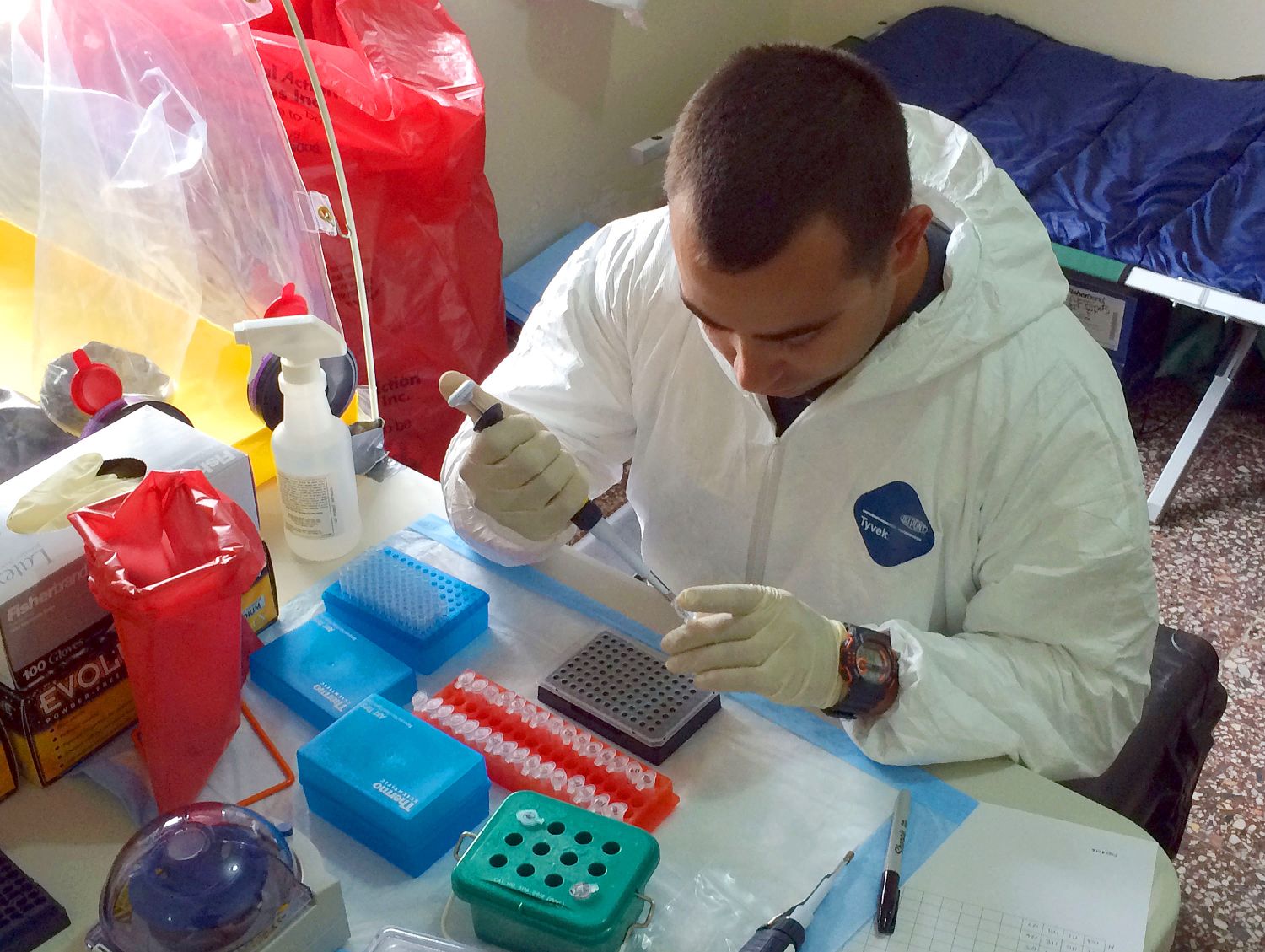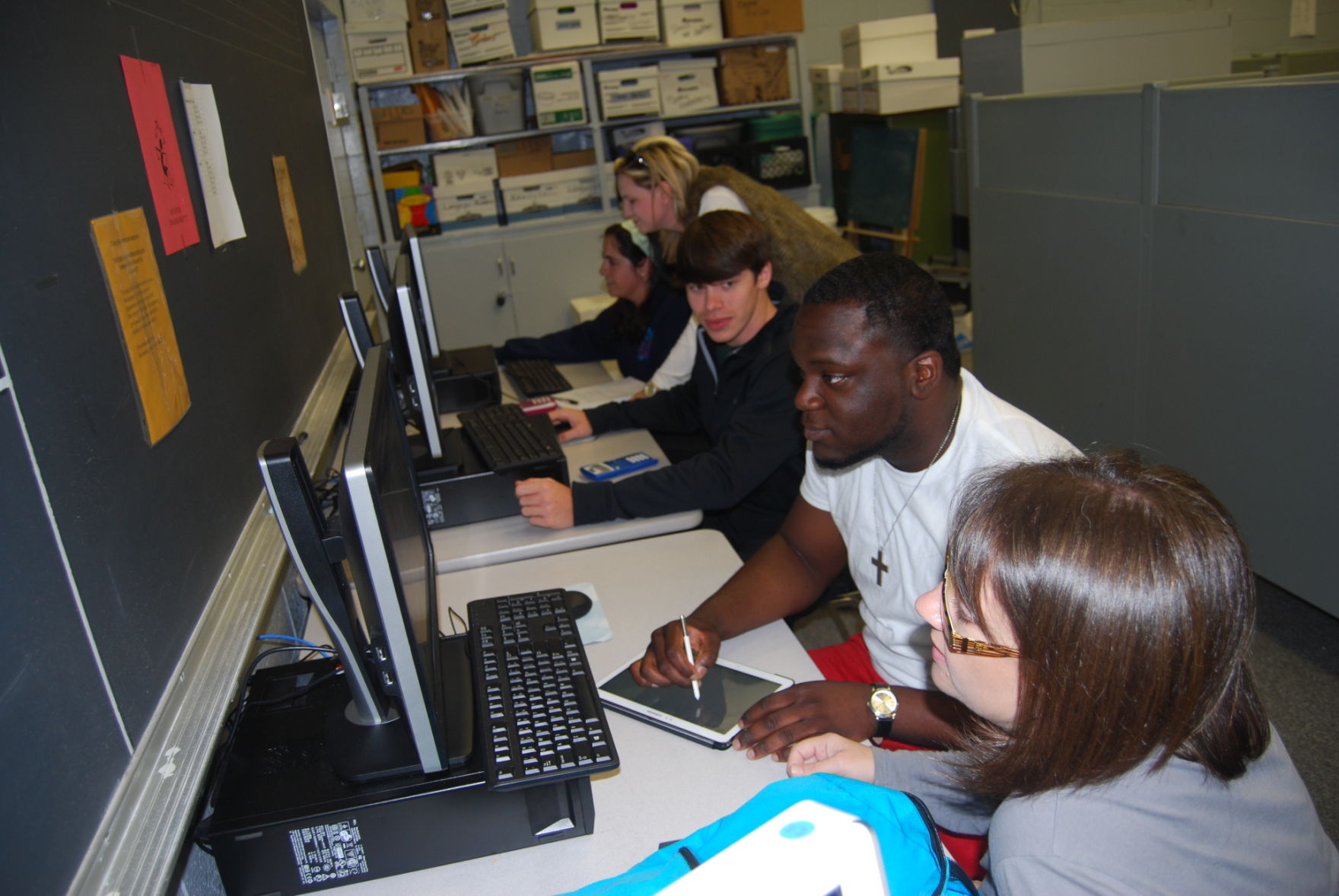Capital One staffers volunteer with local fight against hunger
November 5, 2014
Ebola Offshore
November 5, 2014Jane Matt, the great-great-granddaughter of Gov. Francis Tillou Nicholls for whom Nicholls State University is named, created a scholarship for Nicholls students who have learning disorders such as dyslexia or attention deficit disorder.
The Blue Moon Scholarship for Dyslexia and Related Learning Disorders is available to full-time students with learning disorders who maintain at least a 2.5 GPA.
“I named the scholarship Blue Moon because that was my parents’ song,” Matt said. “It is also a play on words because sadly, scholarships earmarked for students with learning disorders all too often come along once in a Blue Moon. I’m very happy that I have been able to do this.”
The $2,000 scholarship, available beginning in Spring 2015, is dispersed in $250 increments over eight semesters.
“Many students can study for an hour and then go off to work. Our students have to study a lot longer, so the scholarships can benefit them because they do not have to worry as much about paying for things,” said Dr. Karen Chauvin, director of the Louisiana Center for Dyslexia and Related Learning Disorders. “We hope that they don’t have to work as much so they can dedicate more time to studying.”
The center, which is located in Peltier Hall, provides services to students with learning disabilities.
“We provide services that they may need to be successful, such as extra time on tests or tests read aloud,” the director explained. “We serve as advisors also by helping them schedule classes so they don’t overbook themselves. We also help choose the best schedule for them.”
Matt’s decision to support a scholarship fund is, in part, a tribute to her father, James Henry Ware Jr., who died in 2012. A Navy man who served in World War II, Ware’s commitment to education was a badge of honor.
“It took him 10 years to earn his baccalaureate degree because he volunteered to serve in the Navy after two years of college and then returned to college for the remaining two years after WWII,” Matt said. “He paid for the entire cost of his education, so it took him a while to complete his degree. But he stuck with it and got it done.”
Ware was also proud of his family’s heritage. Matt said the fund honors him and her family while also helping those who struggle with learning disabilities.
“My family is like most South Louisiana families, ‘family comes first.’ So there was no doubt in my mind that Nicholls University would be the recipient of this scholarship donation. My knowledge of my great-great-grandfather is limited,” she said. “I should have listened more carefully to stories about the family tree. I’m sure that I heard the stories, but I’m equally sure that I got bored and stopped paying attention.”
Matt said that with no disrespect intended because she has attention deficit hyperactive disorder, as well as dyslexia.
Unfortunately, she and her family never knew about the disorders until after she graduated from college in the mid-1980s.
“I graduated from high school in 1981, so there wasn’t a lot known about learning disorders at that time,” Matt said.
Growing up, Matt never had issues with comprehension although she does read at a slower rate.
Her biggest obstacle came with math.
“I had a terrible time with math K-8. Word problems were particularly problematic. I finally took a remedial math class in ninth grade; doing this gave me a chance to catch up, fill in learning gaps and build my confidence. I didn’t have substantial problems with math from that point on, but it was always a subject that required a lot of extra effort on my part to master,” Matt said.
“I also finally figured out that word problems have a certain pattern. I learned to memorize the patterns and match up the necessary formula. That’s how I got through college physics and college algebra.”
Nicholls’ Dyslexia Center uses technological advancements to aid students in overcoming obstacles they face as a result of disorders.
The center has access to the Kurzweil System software, which uses PDF files to read to students as well as aid them in note-taking.
Students use Intel Readers with smaller assignments. They snap a photo of the page, and the software reads the information back.
“Our students are all very bright. You honestly have to be when dealing with dyslexia,” Chauvin said. “Their reading ability may be on a fourth- or fifth-grade level. They understand the material, but they cannot always read it on their own. Their reading level is low, however, they can do it. It just makes it harder for them.”
Students with disorders who have made use of the Dyslexic Center have gone on to do well because of the help they receive.
“Improvements in technology have helped,” Chauvin said. “We have had a number of students become very successful in school. Some of them have gone on to get their master’s and doctorate degrees.”
Students may be able to overcome learning disorders through the use of programs like the Dyslexia Center and with the aid of scholarships, but Matt believes it is a matter of finding what ways work for the individual involved.
“Overall, the key to successfully overcoming a learning disorder is knowing that there is more than one way to skin a cat,” she said.
Nicholls Dyslexia Center advisor Rachel Hebert (bottom) helps Bryan Barnes while Sarah Daviet (top right) tutors Paul Reed and Katelin Daigle.










